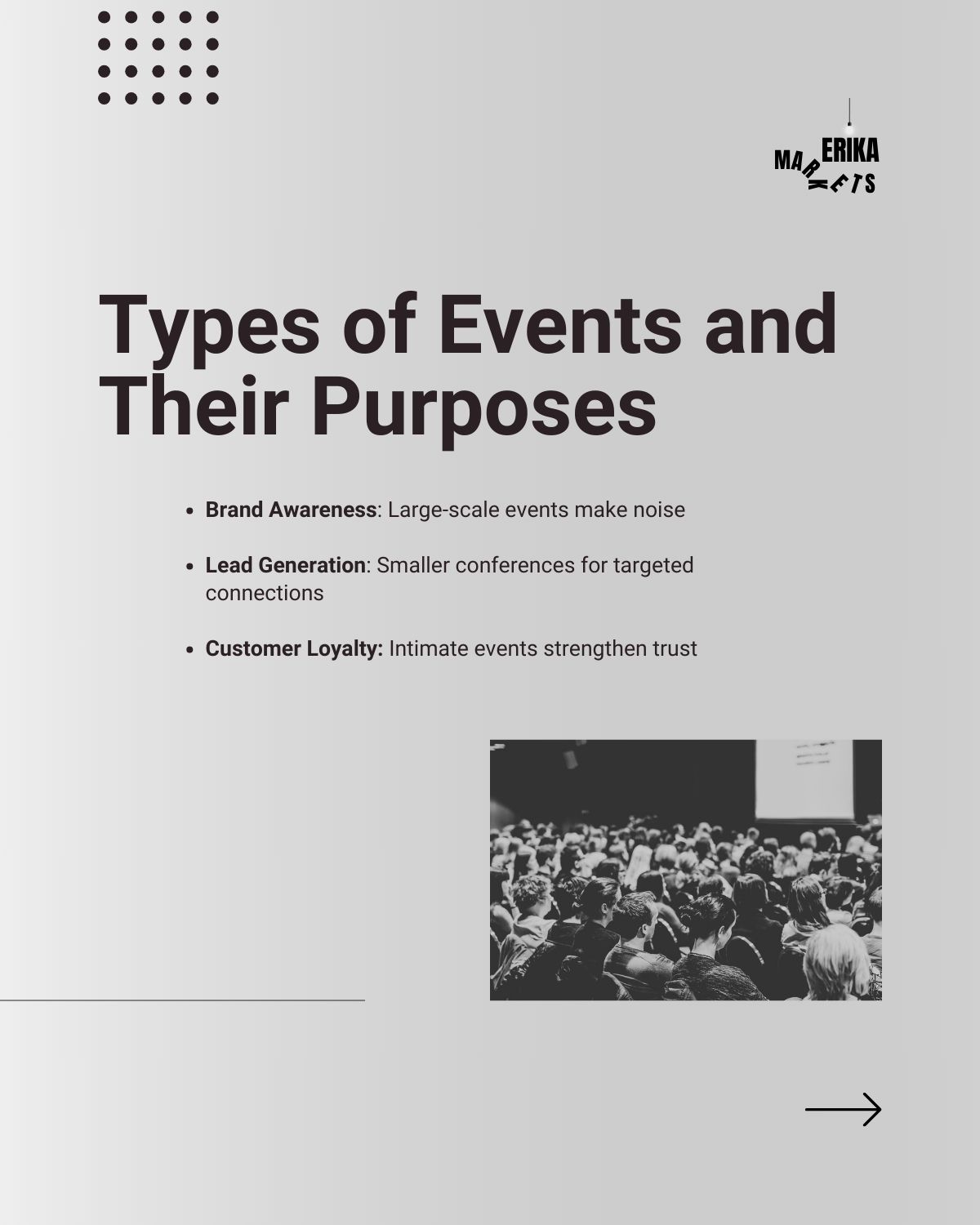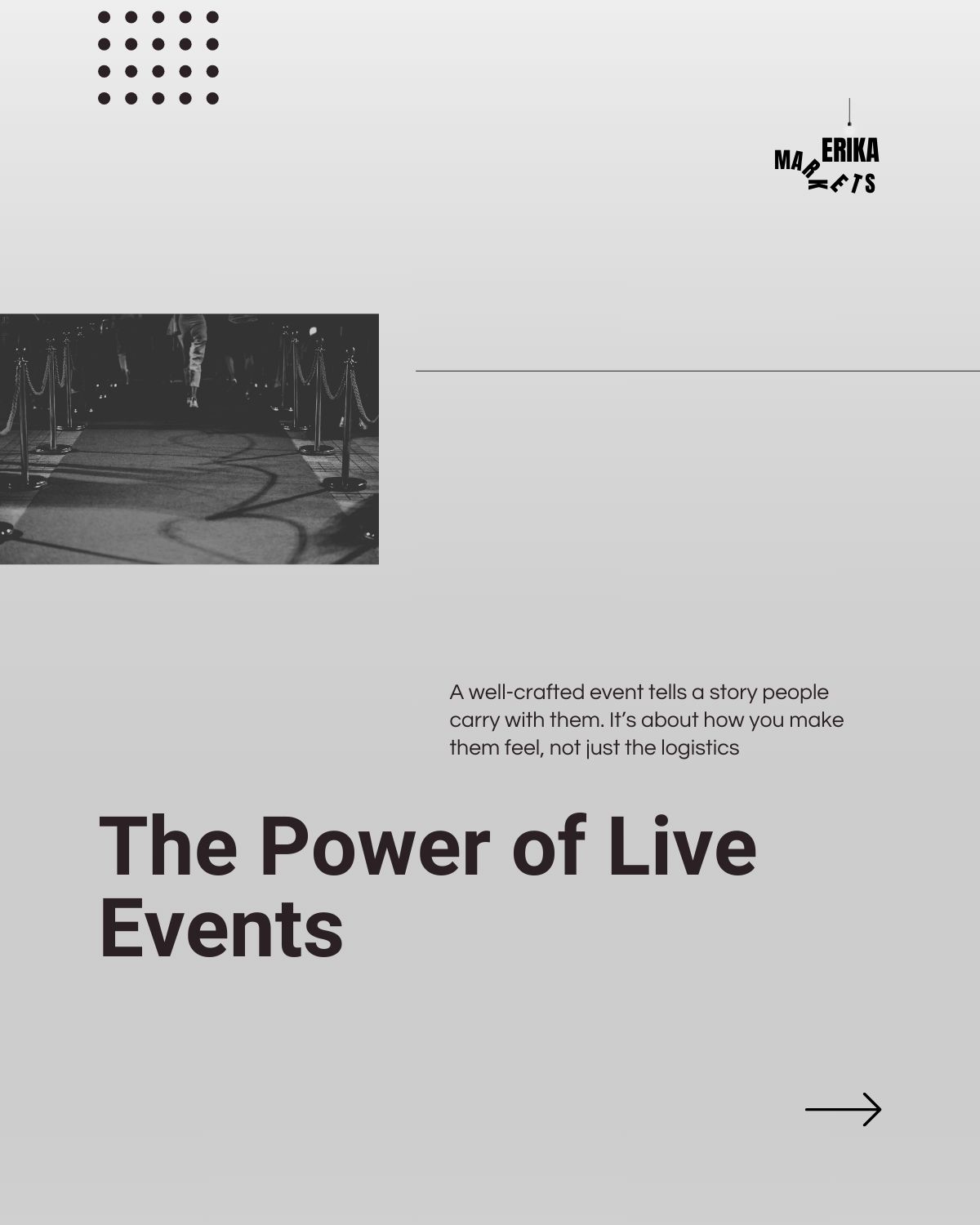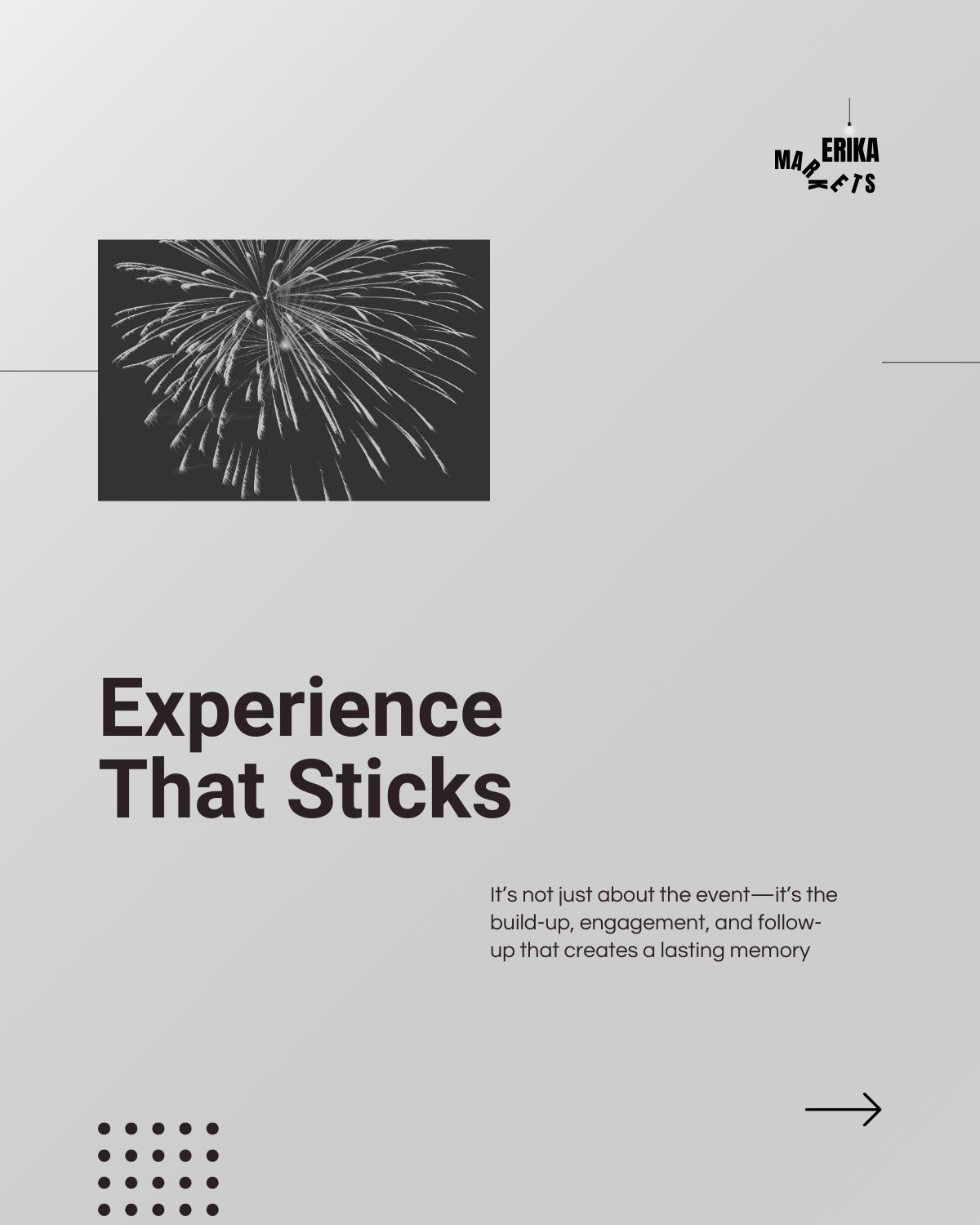Event-Based Branding Strategies: Creating Long-Term Brand Impressions
- Erika Markets

- Oct 9, 2024
- 3 min read
Updated: Oct 10, 2024
I’ve worked on and organized all kinds of events—from techno parties to conferences—and if there’s one thing I’ve learned, it’s that events can create a lasting brand impression that goes far beyond the actual day. From my own experiences and analyzing other events, it’s clear that brands can use event-based branding strategies to build deeper connections with their audience. In 2024, live events are still thriving. Yes, online events and webinars had their moment, but nothing replaces the energy of in-person experiences. People crave face-to-face interactions, and brands that understand this are using live events to foster real emotional connections.
Different Types of Events and Their Purposes
Not all events are the same, and they shouldn’t be. Companies should choose the type of event based on what they need to achieve:
Brand Awareness: If your goal is to introduce your brand to a new audience or reinforce your image, large-scale events, like product launches or big conferences, are great. These events are all about making noise and leaving people with an impression.
Lead Generation: Smaller conferences and trade shows are perfect for gathering leads. You can meet potential clients or partners in a setting where people are already interested in your industry.
Customer Loyalty: For existing customers, intimate events like exclusive parties or workshops work wonders. These events focus on strengthening the bond between your brand and the people who already trust you.
Each event has its own purpose, and the budget should align with that. If you’re aiming for brand awareness, you might need a larger budget for scale and reach. For lead generation, it’s more about targeted spending—making sure you’re getting quality connections. And for loyalty-building events, the investment goes into creating an unforgettable, personal experience.
The Power of Live Events
What I’ve come to realize is that a well-crafted event does more than create hype for a single day. It becomes a story people carry with them. A great example is Red Bull. They’re not just selling an energy drink; they’re selling a lifestyle. Their events—whether it’s extreme sports competitions or high-energy festivals—perfectly match their brand’s adventurous vibe. People leave feeling like they’re part of something bigger, and that feeling lingers.
From my own experience, when you create an event that speaks to your brand’s values, it resonates on a deeper level. It’s about crafting moments that align with your brand’s story, and people want to be part of that. It’s less about logistics and more about how you make people feel.
Creating Experiences that Last
It’s not just about the event itself. It’s about everything that surrounds it—the build-up, the engagement during the event, and the follow-up afterward. Recently, I attended a party by Philip Morris, and I couldn’t help but notice a few things. As a marketer, I saw how they used exclusivity to build brand affinity. The event was intimate and felt personal, and they made sure every detail reflected their branding. From the décor to the interactions, it was all about creating an experience people wouldn’t forget.
Afterward, they didn’t just leave it there. Guests received follow-up content, which kept the buzz alive and reinforced the connection. That’s the secret—events should be more than a one-day thing. They should leave a memory that sticks.
Nike
One of my favorite examples (and yes, I know this is the second time I’m bringing up shoes—well, nice to meet you, I am Erika- The Shoe Freak) is Nike’s event tied to their sustainability efforts. They hosted pop-up workshops where people could bring old sneakers and repurpose them. This wasn’t just a one-day thing; it aligned perfectly with their brand values of innovation and sustainability. It wasn’t just about selling shoes—it was about telling a story. People left with a memorable experience and a deeper connection to Nike’s values. That’s the power of a well-executed event.
So…
In-person events are back, and they are more important than ever. Whether you’re trying to build brand awareness, generate leads, or foster loyalty, the right event can leave a lasting impression that resonates with your audience. What I’ve learned from organizing all kinds of events is that it’s not just about the day itself—it’s about creating a memory that sticks with people long after.















Comments